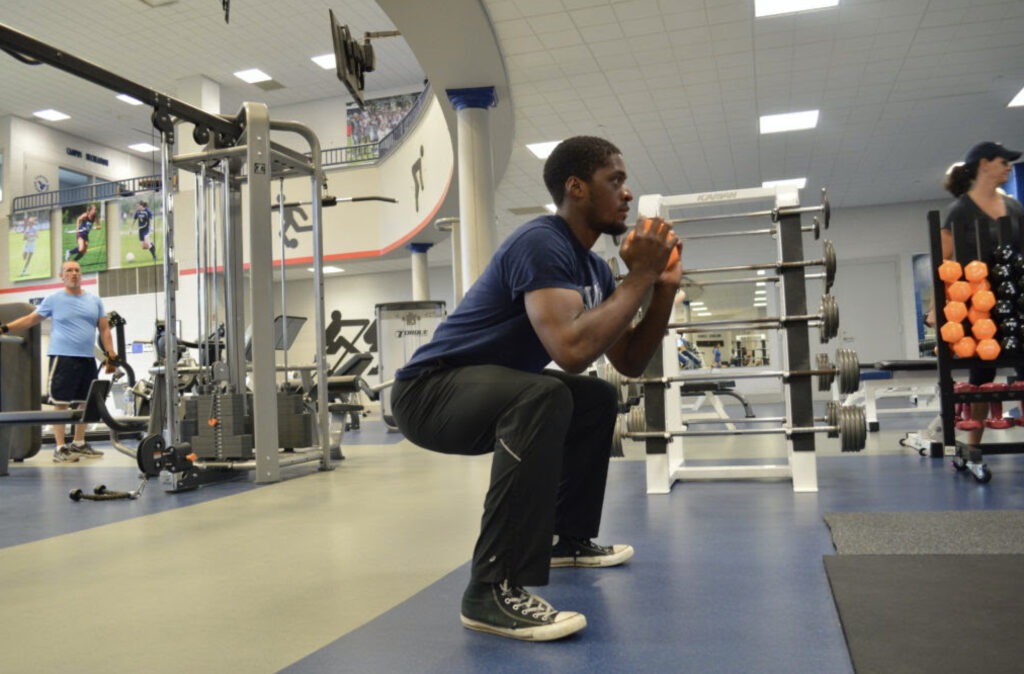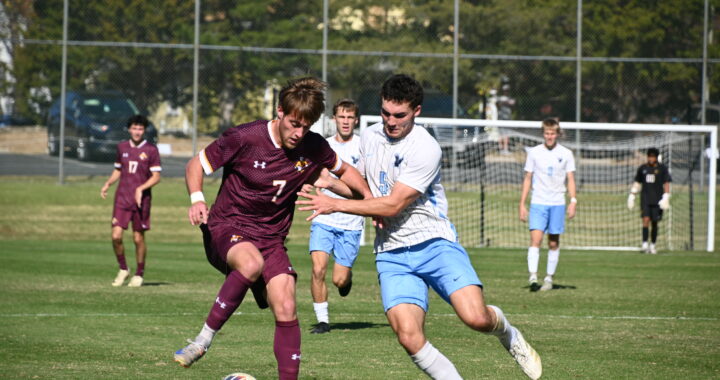How COVID-19 has limited exercise options for college students
3 min read
A UMW student performs an exercise | www.eagleeye.umw.edu
By: Amana Kassem
As schedules are changing everyday due to the disruption of the pandemic, college students have faced multiple challenges in their mental, social and especially, their physical health.
Due to gym closures world-wide and limitations in university gyms, it has been a struggle for students to access gym equipment in their dorm rooms, or school apartments. For many, their university’s gym is their only option to access equipment.
As the COVID-19 cases continue to rise on college campuses, many businesses, including local gyms, are still closed or limiting capacity to members. With reduced exercise, there is an expected increase in use of mental health services as well as at home alternatives to the gym.
“People are experiencing higher levels of isolation, depression, anxiety. I think that the idea that many students who will be returning to campus are going to have significant anxiety, worried about loved ones and others who they are away from, as well as their own safety and well-being”, said Dr. Tevya Zukor, director of the Talley Center. “At the same time, the idea of being at home often had a lot of isolation and loneliness for people and was really self-confining.”
According to Zukor, an essential way to improve mental health during the pandemic is by ensuring you are getting your exercise in: even doing a moderate level exercise can help improve your mood. He says that this can be as simple as a basic 10-15 minute walk around campus or a neighborhood.
Home videos, YouTube videos and bike riding are also some suggested by Dr. Rene Sanders, a nurse practitioner at UMW as ways of keeping yourself active during the pandemic.
“It should be in our guide: get some fresh air, don’t give up the sun, and take in your vitamin D,” said Sanders.
Sanders spoke about how students can look at the positive impacts of the pandemic. “The pandemic has forced us to slow down a bit. It made us appreciate the things that are right in front of us; it can be your family, having enough time to read, and having more time to walk outside and do that exercise,” said Sanders.
Brittanie Naff, assistant director for campus recreation, discussed many effective at-home exercises as well as limitations that may come with those.
“Many college students live in apartment-style homes, which means it’s important to avoid jumping exercises that may disrupt neighbors. Great exercise options include bodyweight squats, or stuff a backpack with books or canned goods for added resistance. Squats are great exercises that work the quads, glutes, and core when done correctly,” explains Naff. “Other low impact bodyweight exercises that give you a lot of bang for your buck include planks, and so many variations found online, pushups, knees or toes, you’ve got options, and static lunges.”
When asked about how to prevent a less-active lifestyle during quarantine, Naff says to make a point to get physical activity in students’ daily routines whenever possible.
“While online school may cause us to sit more and lose that exercise that we normally get when traveling to classes, hopefully this opens up for time for intentional movement,” says Naff. She suggested setting an alarm for the end of class to stretch your arms, neck, hips and legs to get your blood flowing, or take a stroll before class starts to reap the benefits of fresh air, increased energy, focus, creativity, and productivity.
Active Minds, a nonprofit organization that is dedicated to raising mental health awareness among college students, has conducted a survey of the mental health of college students and has found that due to the impact of COVID-19, 73 percent of college students have struggled to get enough physical activity.
Staying cautious about your eating habits during this time is crucial. “It’s easy to make a habit of turning to food for comfort during stressful times,” said Naff. “The type of food we fuel our body with can have an impact on our energy levels, immune system, and satiety.”
By maintaining healthy eating and exercise habits, students can stay on top of their physical and mental health during these unprecedented times.


